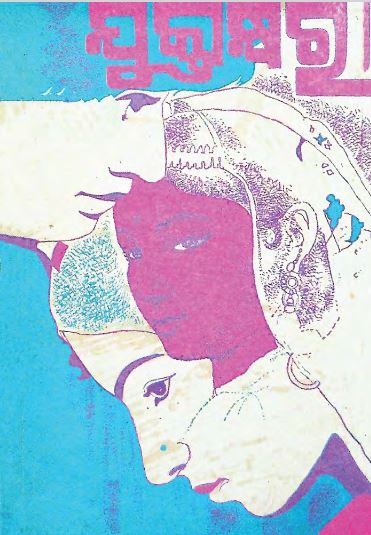Juktakshara, an esteemed compilation of essays edited by Upendra Prasad Naik, was first published in 1990 and has since become a significant work in Odia literature. This book represents a rich tapestry of thought, creativity, and cultural reflection, offering readers a window into the complexities of contemporary life woven through the lens of Odia identity and experience.
The title Juktakshara, which translates to Combination of Letters, metaphorically alludes to the intricate interconnections between ideas, emotions, and lived realities that define human existence. The compilation encompasses a variety of essays, each presenting unique perspectives on a wide range of themes, reflecting Naik’s deep understanding of the social, cultural, and philosophical landscape of Odisha and India as a whole.
The essays within “Juktakshara” are marked by their insightful exploration of diverse topics, from personal reflections and societal issues to philosophical inquiries and cultural critiques. Naik draws upon a rich array of literary and historical references, grounding his arguments in a profound understanding of Odia heritage while simultaneously engaging with contemporary challenges. This duality makes “Juktakshara” relevant not only to Odia readers but also to anyone interested in the socio-cultural dynamics of modern India.
One of the key strengths of “Juktakshara” lies in its ability to weave personal narrative with broader societal commentary. Naik often shares his own experiences and reflections, inviting readers to connect on an emotional level. Through these anecdotes, he addresses pressing issues such as education, social justice, and the importance of preserving cultural identity in the face of rapid modernization. This personal touch adds depth to the essays, transforming abstract concepts into relatable stories that resonate with the reader.
The language of “Juktakshara” is both sophisticated and accessible, showcasing Naik’s command over the Odia language. His eloquent prose and engaging style draw the reader in, making complex ideas easier to grasp. The essays are meticulously structured, with logical progression of thought that allows readers to follow the author’s arguments effortlessly. This clarity of expression is vital in facilitating a deeper understanding of the themes addressed in the book.
Another remarkable feature of “Juktakshara” is its inclusivity of various voices and perspectives. Naik has curated a selection of essays from different contributors, each bringing unique insights and experiences to the table. This diversity enriches the compilation, fostering dialogue and encouraging readers to consider multiple viewpoints. It reflects the multifaceted nature of society, urging readers to engage with differing opinions and challenge their own preconceived notions.
In addition to its thematic richness, “Juktakshara” serves as a valuable educational resource, particularly for students and scholars of Odia literature and culture. The essays not only provide thought-provoking content but also encourage critical thinking and self-reflection, making it an excellent tool for academic discussions and explorations of identity.
In conclusion, Juktakshara by Upendra Prasad Naik stands as a remarkable compilation that captures the essence of Odia thought and culture through a series of insightful essays. Its exploration of personal and societal themes, combined with eloquent language and diverse perspectives, makes it a significant contribution to Odia literature. For readers seeking to deepen their understanding of the complexities of life, culture, and identity, “Juktakshara” is not just a book; it is a profound journey into the heart of human experience.
Books Info
| Books name | Juktakshara |
| Author | Upendra Prasad Naik, |
| No Of pages | 50 |
| Publisher | Nabaraga Prakashani |
| Publication | 1990 |
| Printed At | Uma Printers |
| Distributor | NA |

